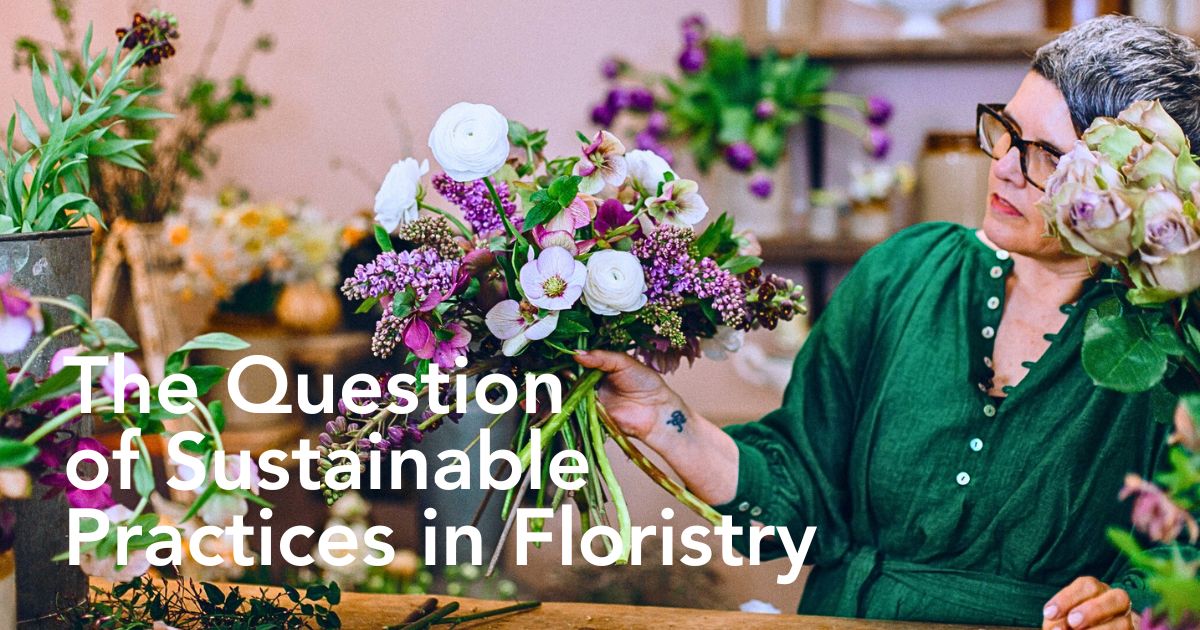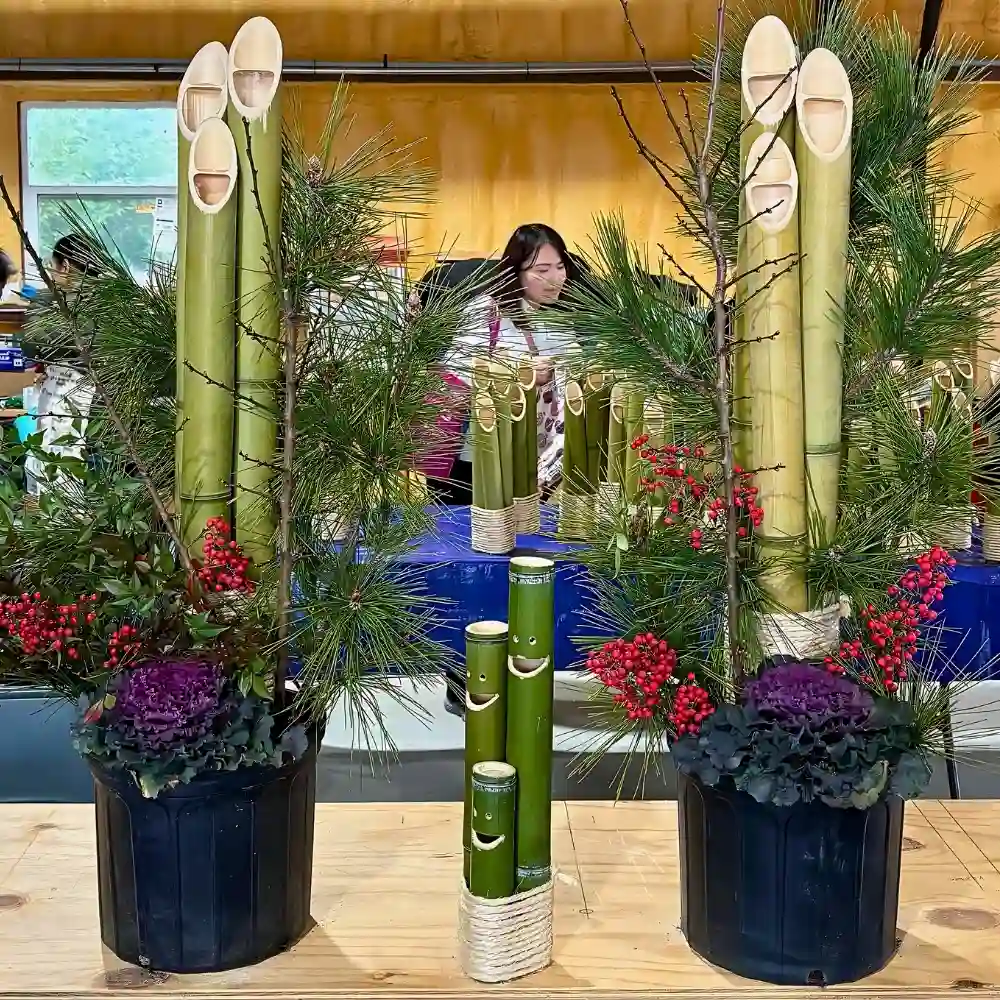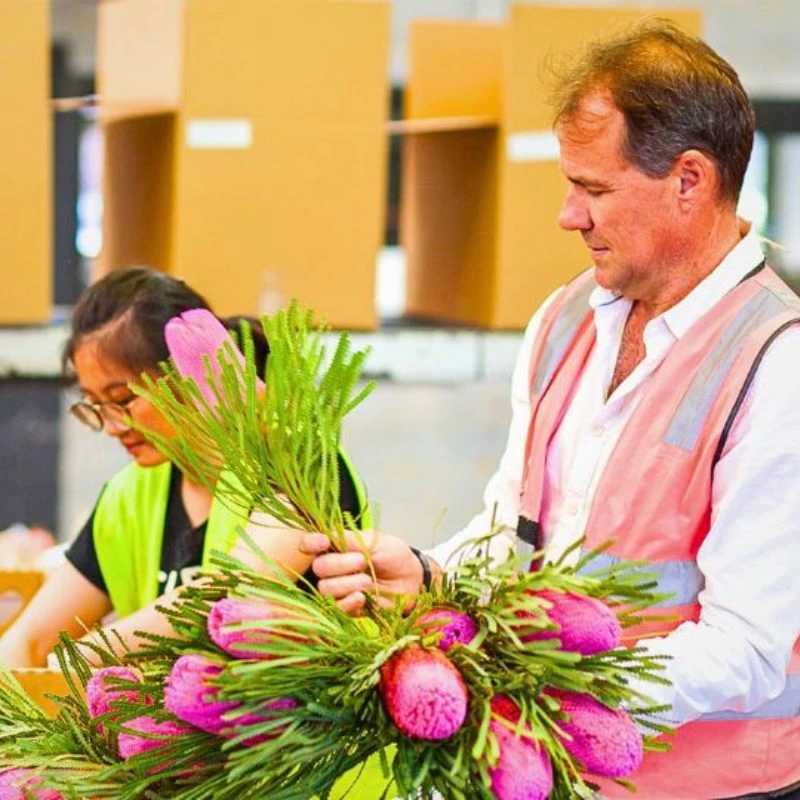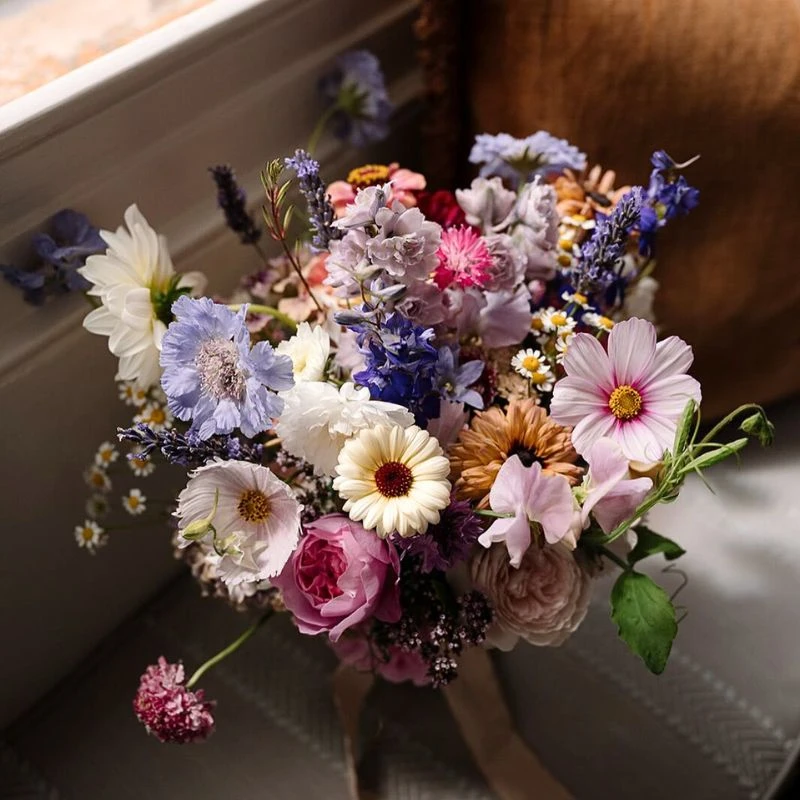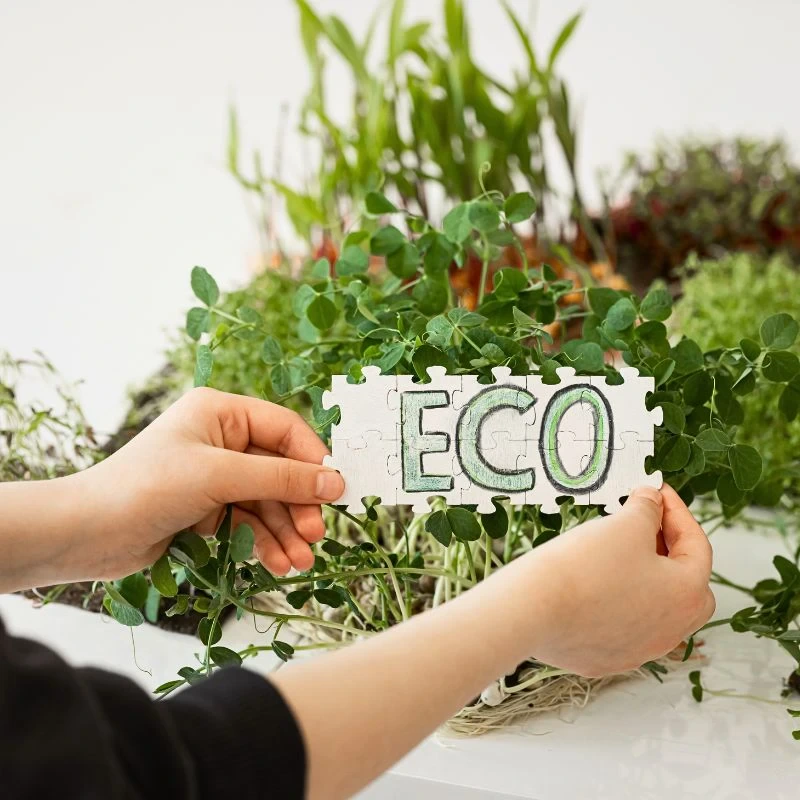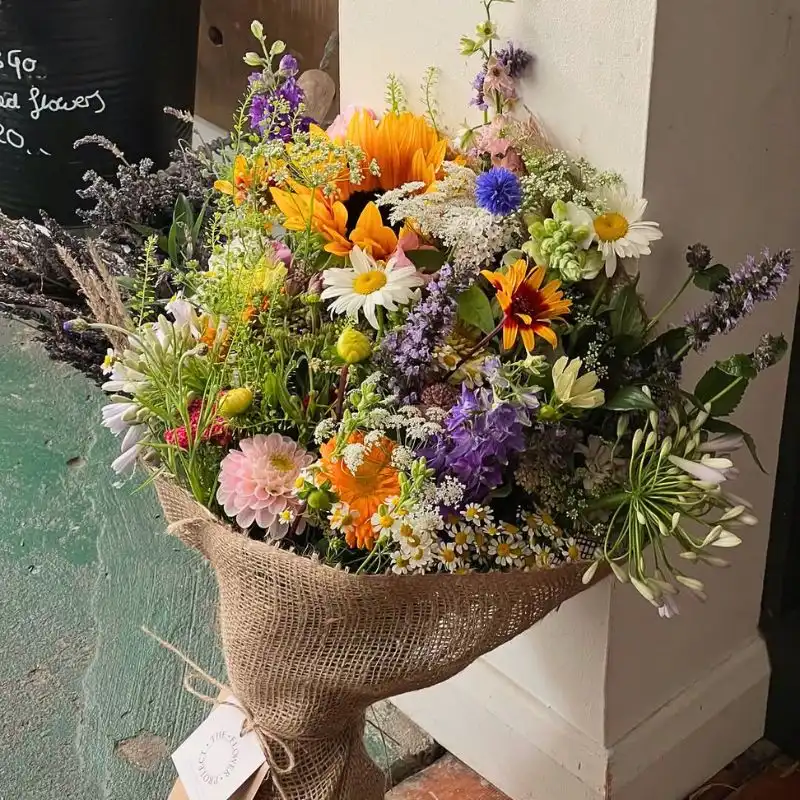The flower industry has always been synonymous with beauty and elegance. Yet, behind the scenes, its practices have often come under criticism for their environmental impacts. There is a rising concern about current issues like climate change, sustainability, and environmental degradation, which are usually linked to this industry. Thus, it is crucial to evaluate its impact and seek methods to lessen its ecological footprint.
A recent study, supported by the Floral Marketing Fund (FMF), investigated the attitudes toward environmentalism and sustainable floral design practices within this industry. The findings emphasized the significance of implementing environmentally sustainable practices in the sector and the necessity for professionals in the flower business to adopt a more active role in alleviating their environmental impact.
Environmental Sustainability Is the Right Option for the Floral Industry
In recent times, the floral industry has seen a significant shift toward sustainability. This change is not just a fad. It mirrors a more in-depth realization that environmental accountability is profitable for the planet and central to the success of the flower business.
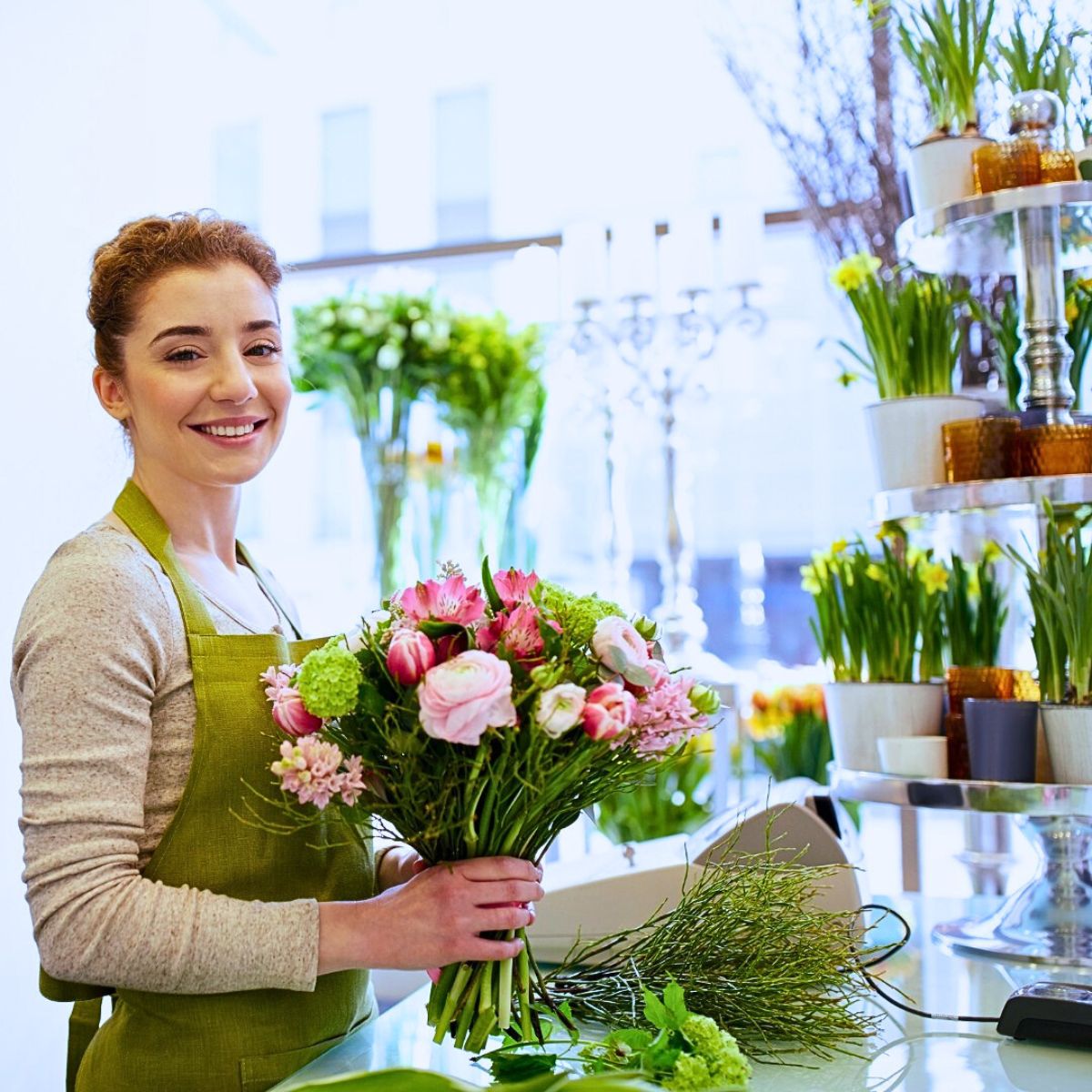
Photo by @bloomnet
This opinion has been established by the findings of the study titled Perceptions of Environmentalism and the Use of Sustainable Floral Design Practices within the Floral Industry. This study was done by researchers from the Mississippi State University (MSU) and Texas State University (TSU), in a project facilitated by FMF — a community of floral industry organizations and leaders, collaboratively supporting and funding floral marketing efforts, consumer research, and promoting the emotional wellness and health benefits to increase consumer consumption of flowers and plants — and co-sponsored by BloomNet and Syndicate Sales.
The study’s findings reveal a growing sentiment among floral experts that being more environmentally sustainable is the right option for the industry. The flower professionals, the study notes, increasingly recognize the importance of eco-friendly practices when creating floral designs.
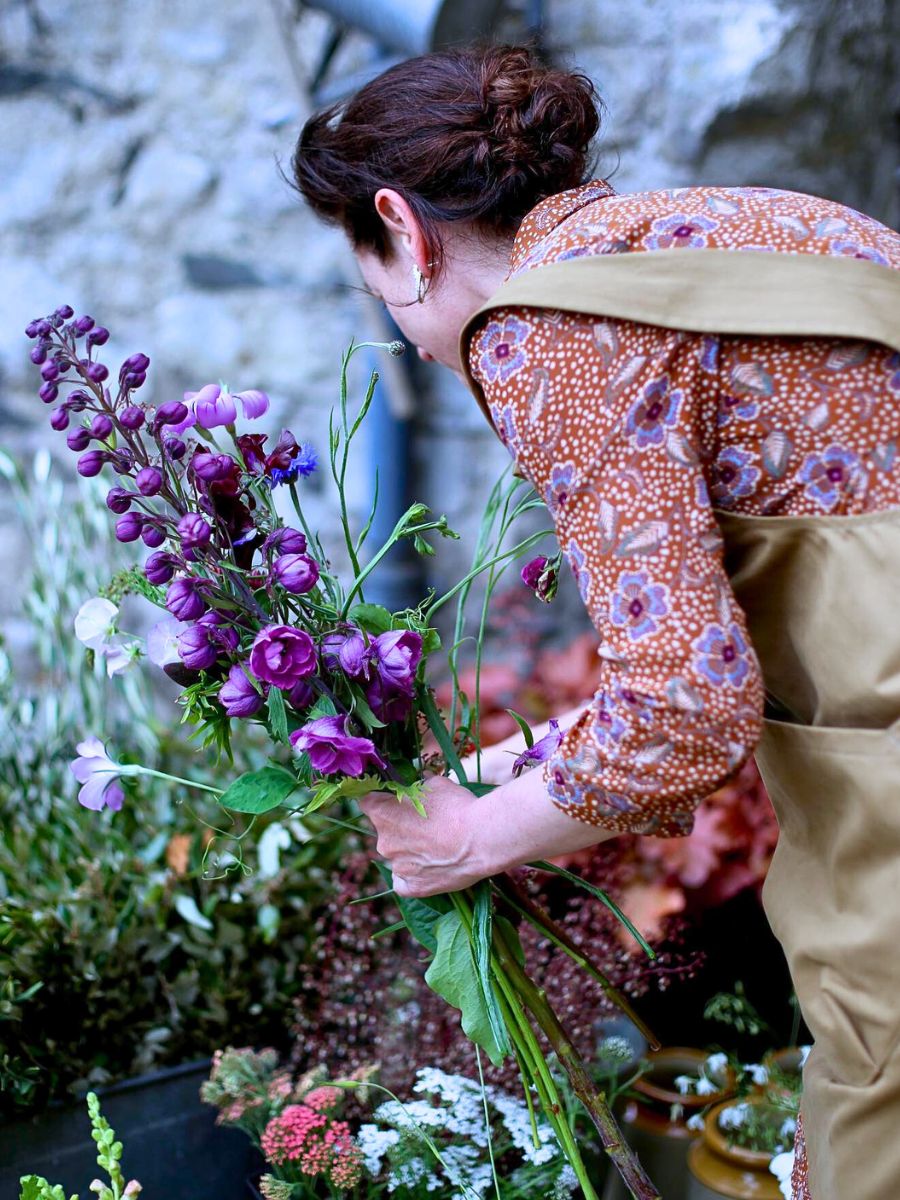
General Attitudes Toward Environmentalism in the Floral Industry
The research revealed that a significant 74.2% of respondents agreed — or strongly agreed — that sustainable practices were environmentally appropriate for floral professionals to consider in their designs and work. Additionally, 80.1% of respondents stated that they were interested in learning more about sustainable floral design.
This level of agreement demonstrates an increasing awareness of environmental issues in the floral industry. It shows that floral professionals are becoming more aware of the implications of their approaches and practices on the environment, and supporting a sustainable approach to floral design.
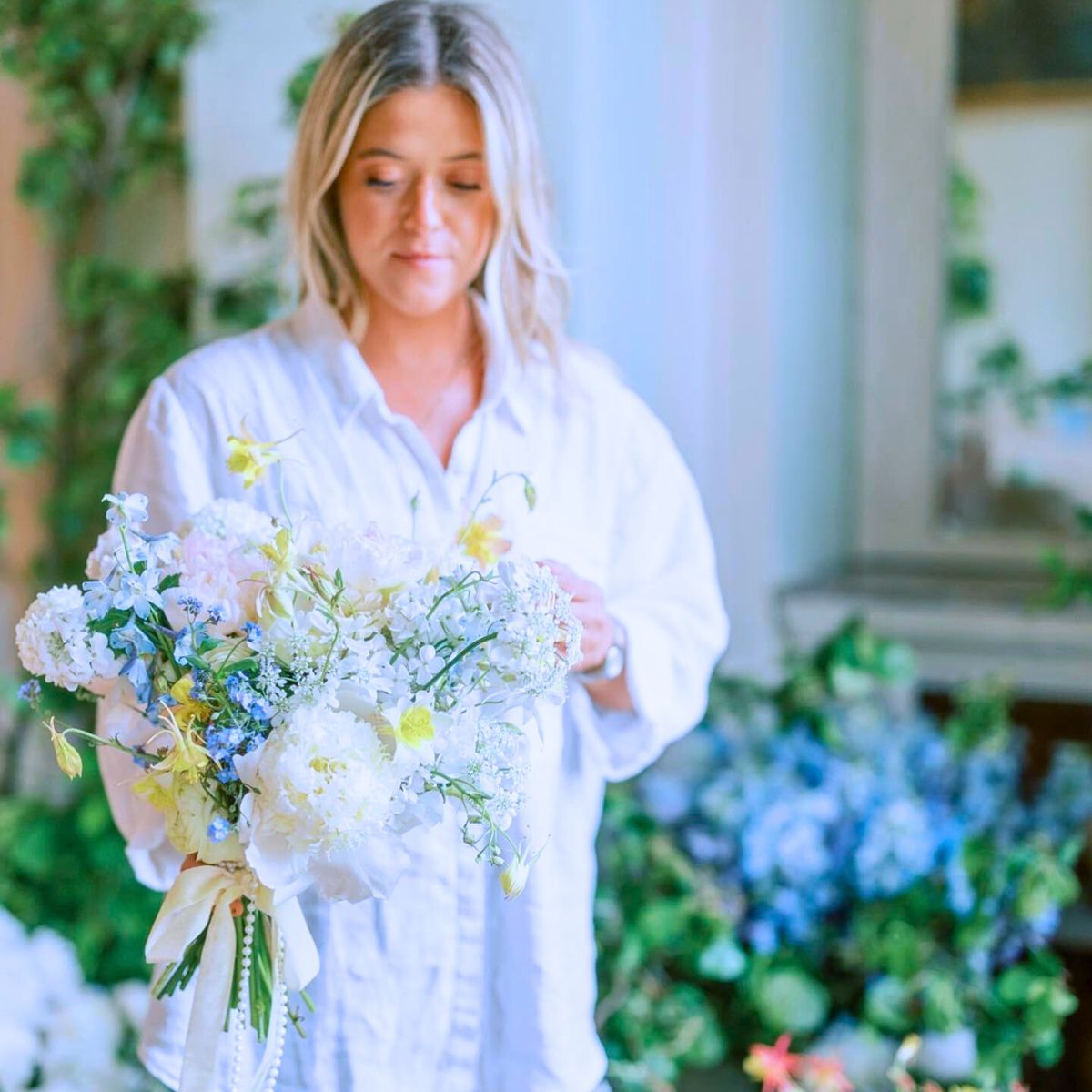
Photo by @sophiemaybranding
Further, an impressive 80.8% of respondents demonstrated their awareness of sustainable floral practices and approaches for creating environmentally conscious floral arrangements. It makes evident a willingness for florists to utilize sustainable practices, and that many florists view themselves as not mere florists but as caretakers of the environment.
In total, 71.3% of respondents indicated that the business they own, or work in is implementing at least one sustainable practice in its model, with 60.5% of respondents indicating they try to create floral arrangements with sustainable processes and materials. Such a growing awareness is an important step toward encouraging sustainable practices and reducing the floral industry's environmental impact.
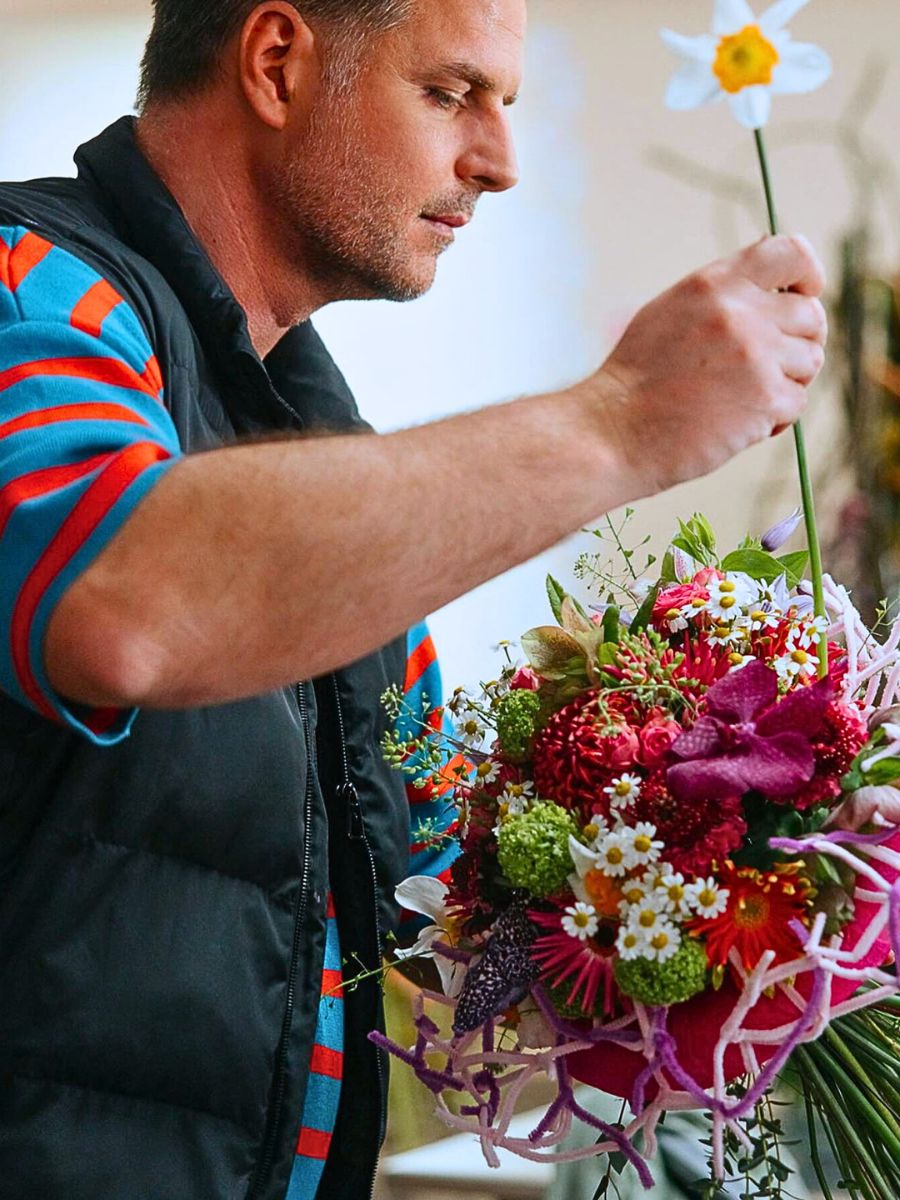
Sustainable Floral Practices Among Floral Professionals and Florists
The evidence provided highlights florists’ commitment to sustainability, stemming from the sustainable practices of the professionals working in the floral industry. The study, thus, indicates that 71.3% of survey participants stated that their businesses incorporated at least one type of sustainable practice.
The three sustainable practices currently incorporated in floral businesses as indicated by this study include recycling cardboard materials (60.5%), sourcing local floral materials (57.4%), and encouraging a container return program (55.6%). Although these percentages are great, there is room for advancement. Only 22.1% of participants indicated their businesses promote sustainable practices to the public using advertising, this indicates a greater need for visibility and marketing of these practices.
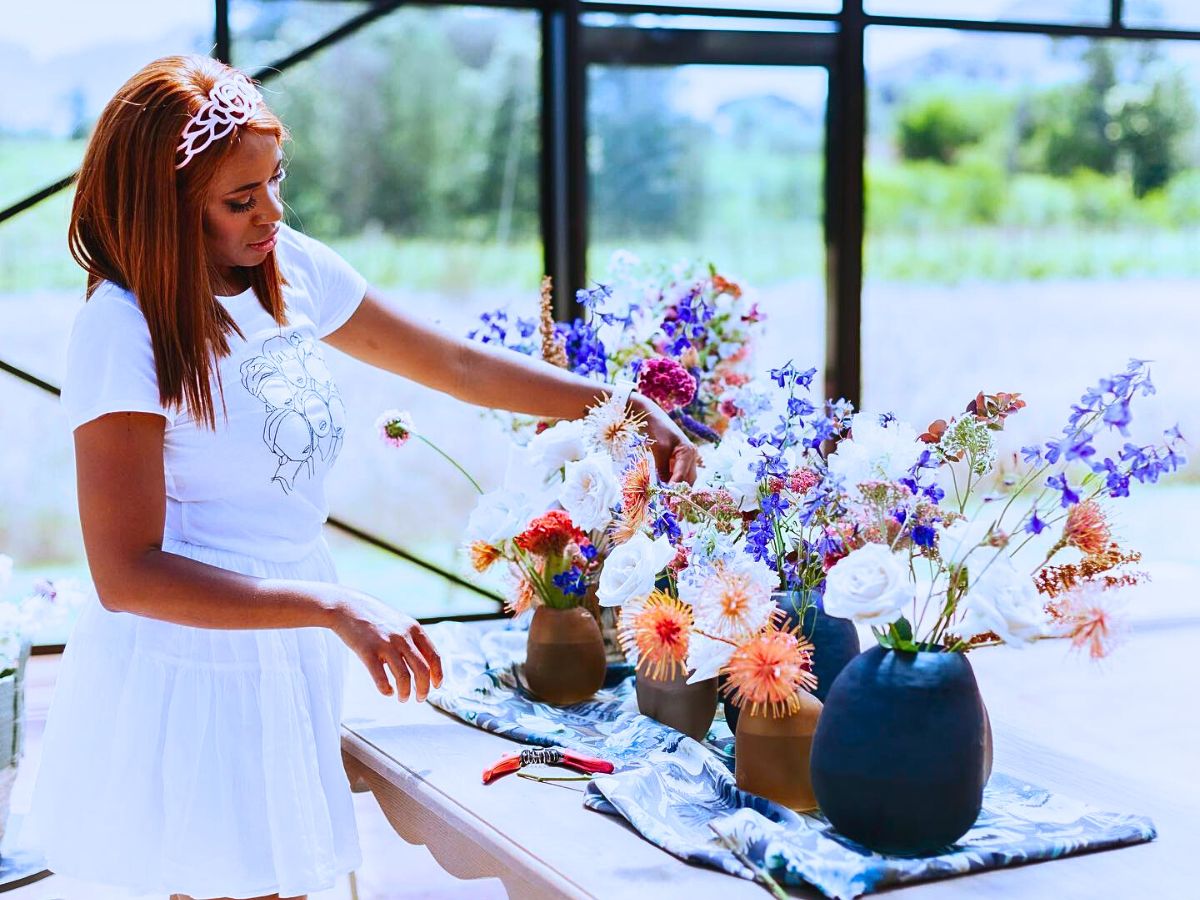
Photo by Mabel M Florals
Regardless, these findings show that a lot of florists are actively trying to lessen their environmental impact by using sustainable materials and practices. As a result, the florists not only employ practices that speak to their environmental values but they are also meeting the needs of an increasingly evolving market of more socially and environmentally conscious customers.
Customer Interest in Sustainable Practices
It is ironic that while many florists recognize sustainability as an important issue, consumer interest in florists’ sustainable practices is, perhaps, rather low, according to the study. A noteworthy 72.2% of participants stated that consumers did not ask about sustainable practices. This disengagement creates challenges. It could inhibit florists and other floral professionals from comprehensively promoting their activities related to sustainability.
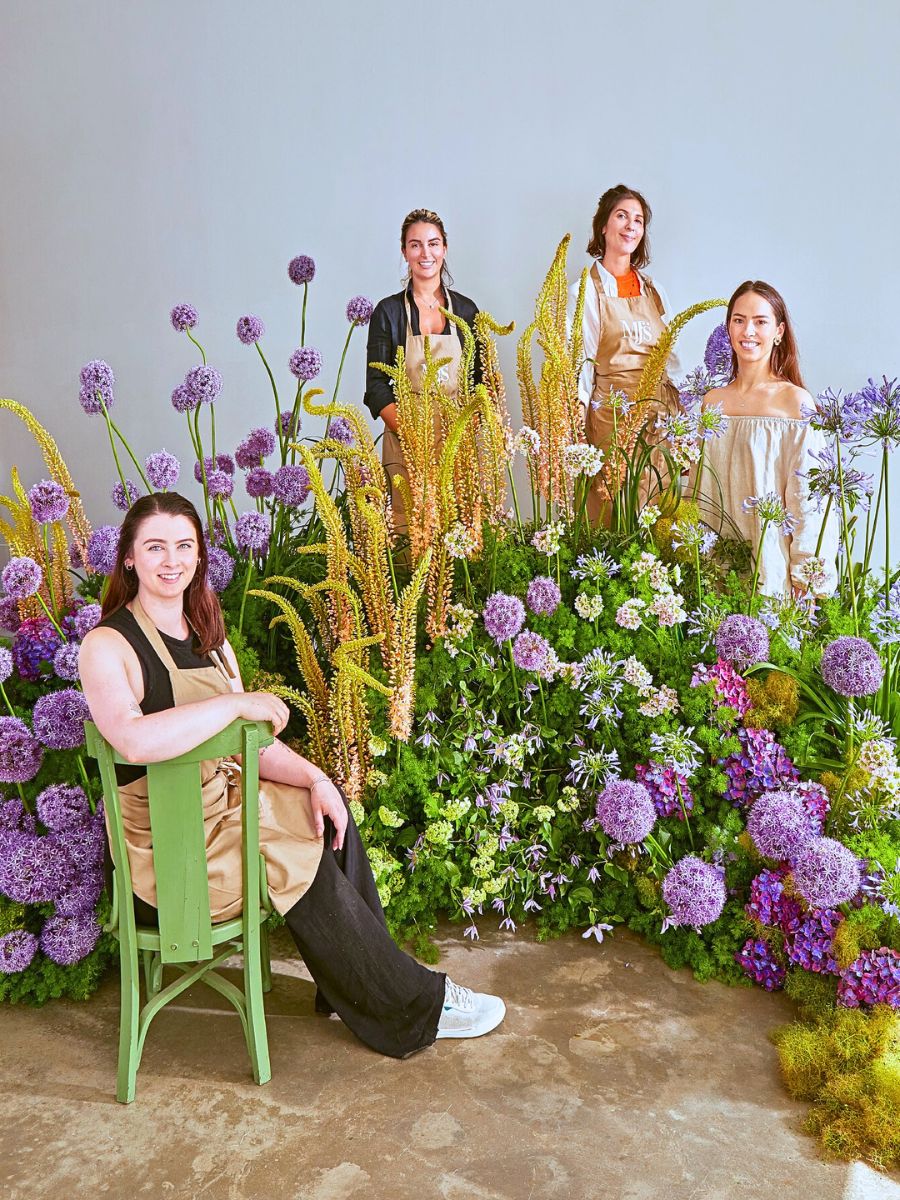
Past research has, however, found that consumers indicated a willingness to pay a premium for floral designs made using sustainable practices. Yet, the fact that most floral professionals using sustainable practices within their business are not advertising their green initiatives suggests many floral businesses are potentially missing out on revenue streams by not informing customers of their sustainable practices.
To this end, retail floral practitioners who have implemented sustainable attributes in their business should try to inform their customers about their sustainable floral practices, through as many promotional channels as possible. These include in-store signage, posting statements on their business website and social media platforms, and sending sustainable information to consumers on customer email lists.

Photo by @sideau_agrawool
That notwithstanding, among those customers who express interest in knowing about the sustainability efforts, the most common inquiries revolved around the use of locally sourced flowers, the return of vases for reuse, and the use of traditional floral foam. This shows that while awareness may be low, there is a segment of the consumer base that values sustainability and is actively seeking information on eco-friendly floral practices.
Interest in Sustainable Floral Certification
The potential for growth in sustainable practices is exemplified by the growing interest in certification programs. Approximately 40.2% of participants expressed interest in pursuing a certification in sustainable floristry. Moreover, participants indicated a willingness to invest in certification, with the average amount they were willing to spend for such a process being $861.
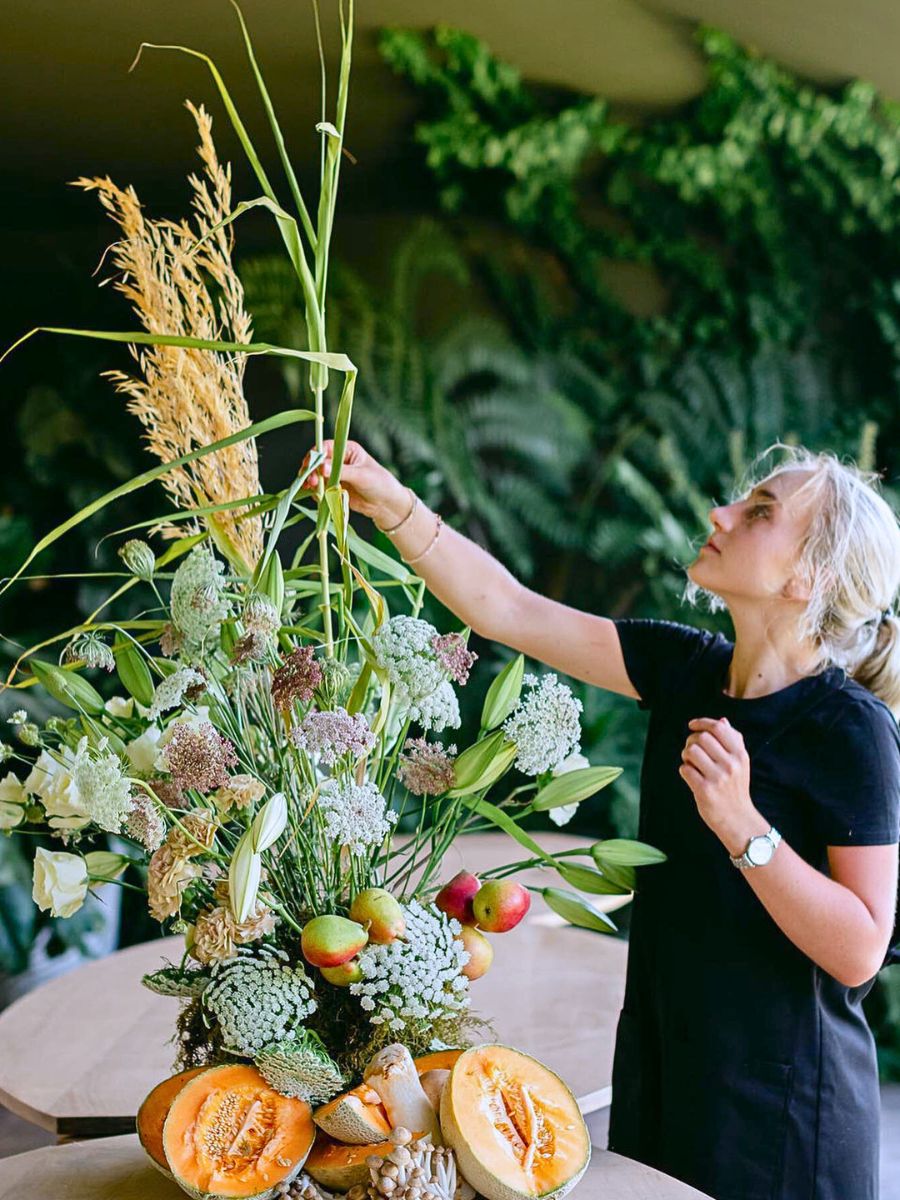
Yet the two primary barriers that the participants shared, while considering completing a certification program were the costs and time needed for completion. This would suggest any eco-friendly certification program for professional florists should be aware of the costs and time needed to complete the certification process. Additionally, it should also be aware of how participants will access the material to complete the certification.
Even still, the interest in certification programs suggests a need for floral professionals and businesses to better establish credibility and indicate their commitment to sustainability. Considering certified businesses typically have a competitive advantage, pursuing sustainability certifications could, therefore, act as a point of engagement and a vehicle for sustainable practices to expand across the floral industry.

Perceptions on the Current Sustainability Level of the Floral Industry
The research was also concerned with how participants perceived the sustainability of the floral industry as a whole. Overall mean sustainability in the floral industry on a scale of 0 - 10 was 5.08. Many floral professionals had a perception that the industry was moderately sustainable. The results were not statistically significant but there was also a change of -0.51 points from pre-survey to post-survey. One can, therefore, infer that during the survey process, consumers became reflective and began to think more critically about sustainability in the floral industry.
This thinking is a primary catalyst for changing systems. It is a reflection that is essential for driving transformation as acknowledging that the industry has room for improvement can encourage floral professionals to pursue more ambitious sustainability goals. It also highlights the importance of learning and discourses about environmental practices within the floral community.
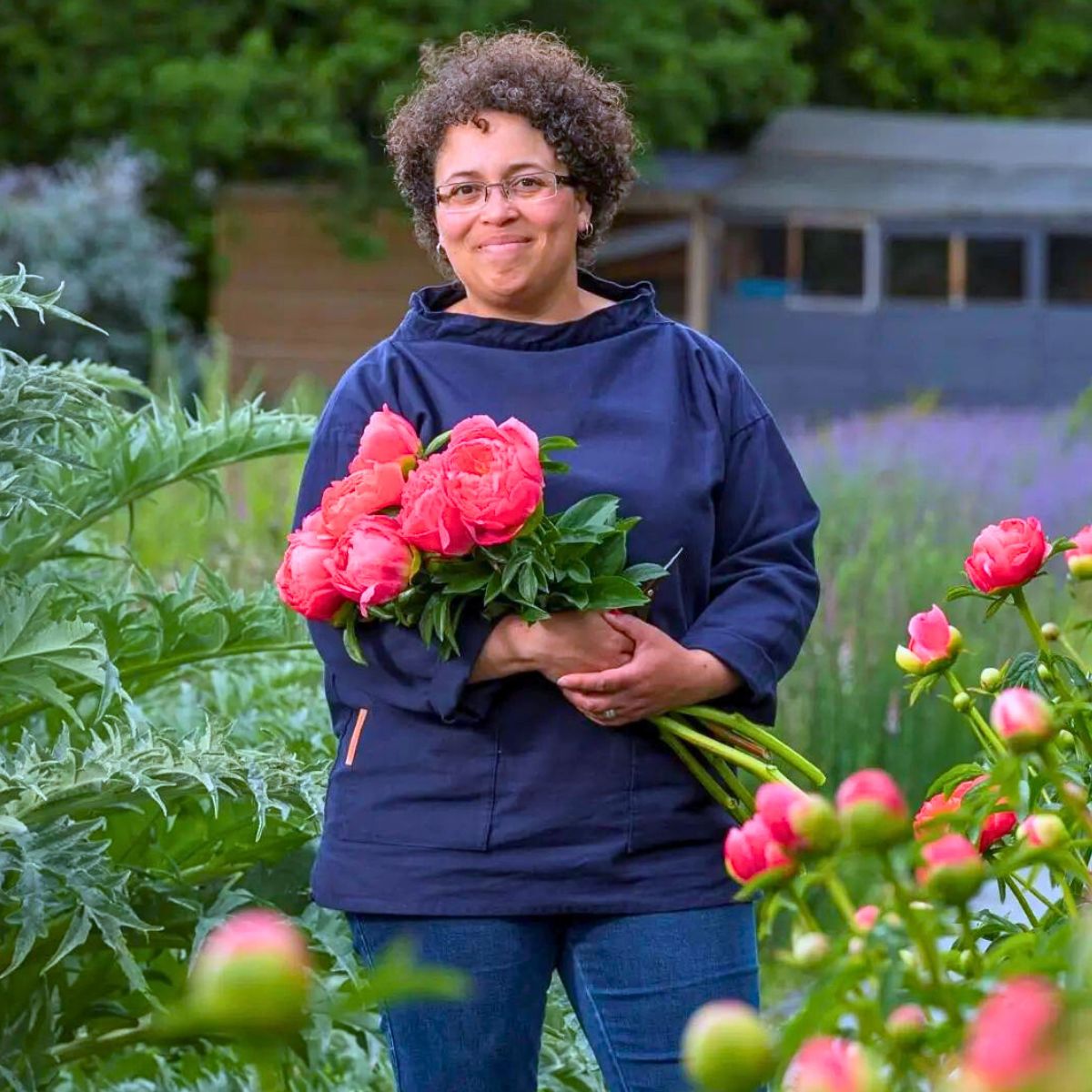
Photo by @sustainablefloristry
Obstacles to Implementing Sustainable Practices
Despite the positive trends, there are still barriers that hinder the professional floral industry from fully adopting sustainable practices. The study revealed that 46.4% of the respondents faced obstacles that prevented them from fully using more sustainable approaches to their work. The two leading factors that were hurdles to the holistic adoption of sustainable floral design practices were the cost of sustainable products and the design requiring non-sustainable products to construct and having no sustainable alternatives.
The findings here, therefore, suggest greater innovations on the part of suppliers of floral materials that would allow for more sustainable options to be accessible to professional florists when creating a variety of designs for a range of occasions. Still, in this perspective, the financial component is particularly important as many floral professionals are worried that sustainable options will create a cost escalation.
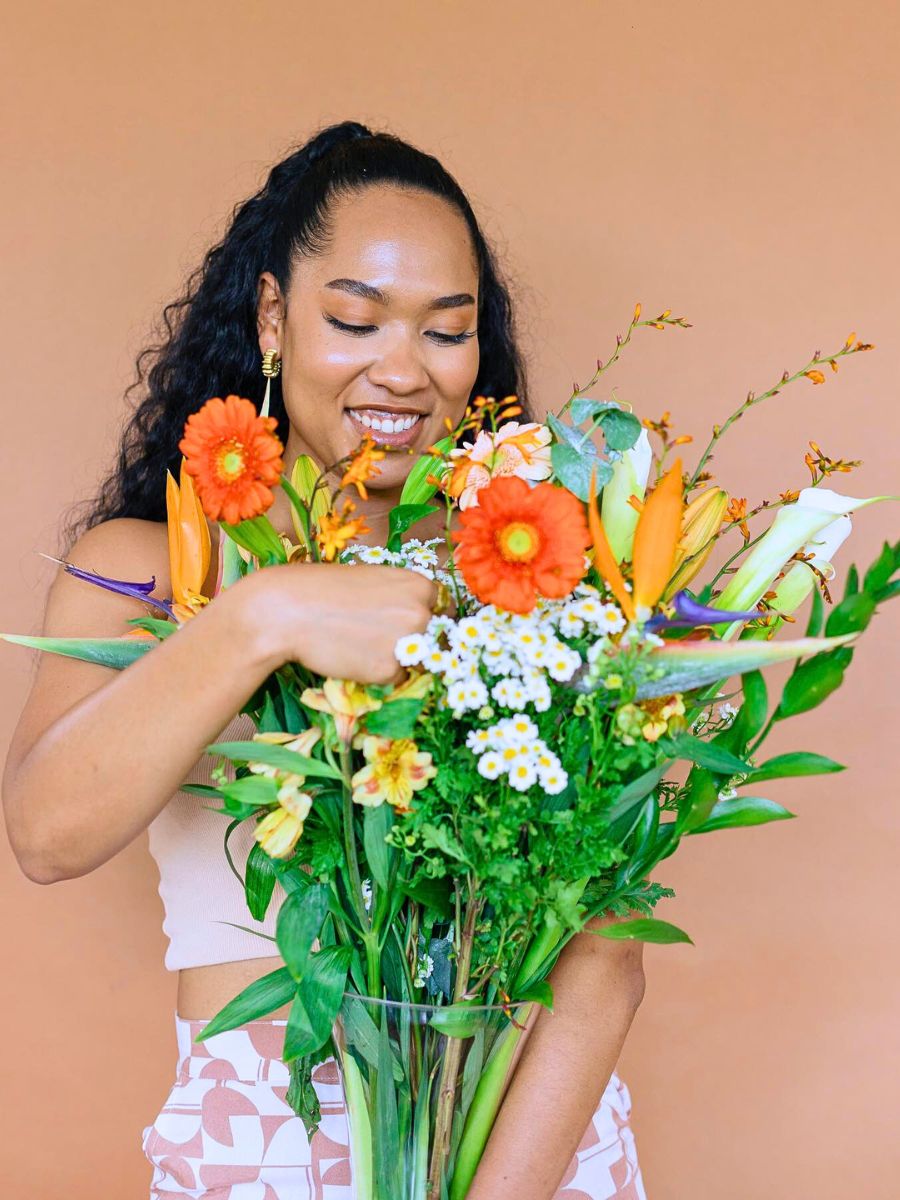
This feeling indicates the need for more alternative affordable sustainable practices and more education on the long-term financial benefits of eco-friendly practices. For that reason, floral educators should consider including courses that intentionally teach sustainable practices in their programs so that their apprentices will better understand ways to construct more sustainable designs.
Floral Professionals Must Advocate for Eco-Friendly Policies
The floral industry is, currently, at a critical moment when it comes to its progress toward sustainability. The findings of the study, in turn, suggest that there is a common understanding amongst professionals that initiating environmentally sustainable processes is both a moral necessity and a basic requirement in today's floral markets. Despite substantial progress, support and advancement are still inadequate. This is especially relevant when we consider the barriers to adopting and certifying sustainability and appealing to consumers.
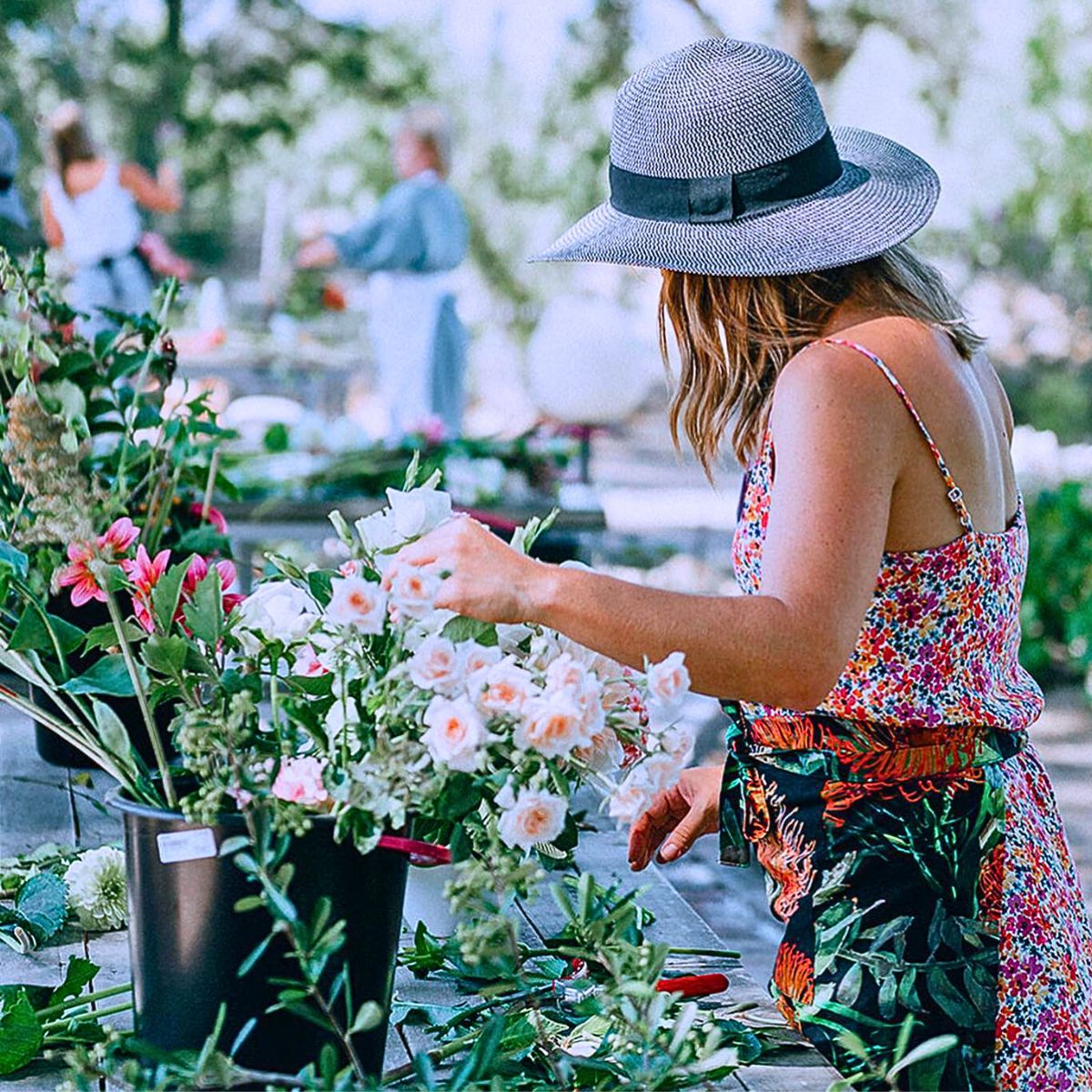
Consequently, as the industry develops and navigates this new way of being, more and more floral professionals need to embrace eco-friendly practices and find creative solutions best suited to their experience and professional interests, as well as to sustainability values. This way, they will contribute to protecting the planet’s welfare, and by design create a loyal customer base who appreciate and acknowledge their commitment to improving the environment.
Feature image by @madridflowerschool, header image by @tallulahroseflowerschool.

